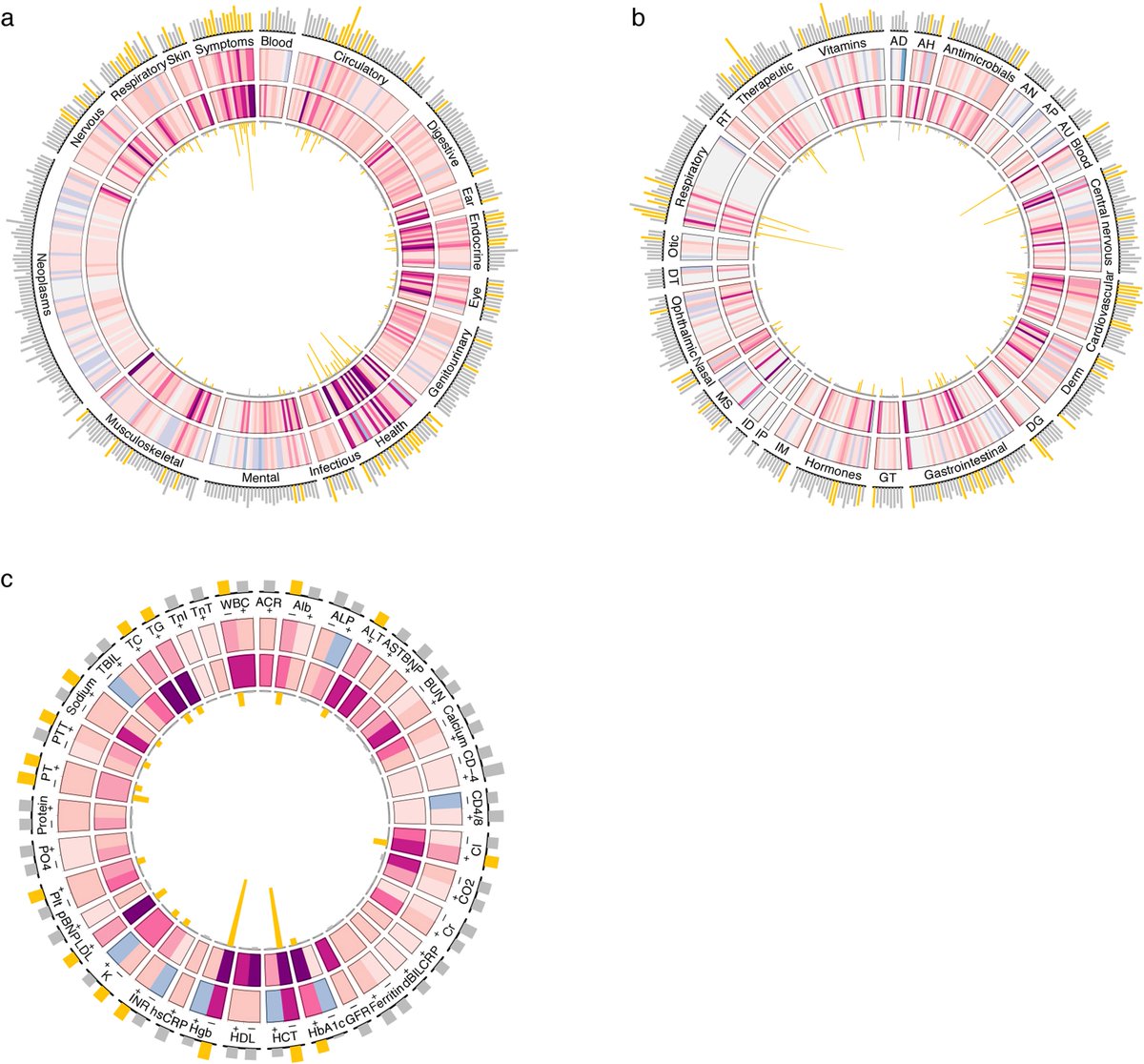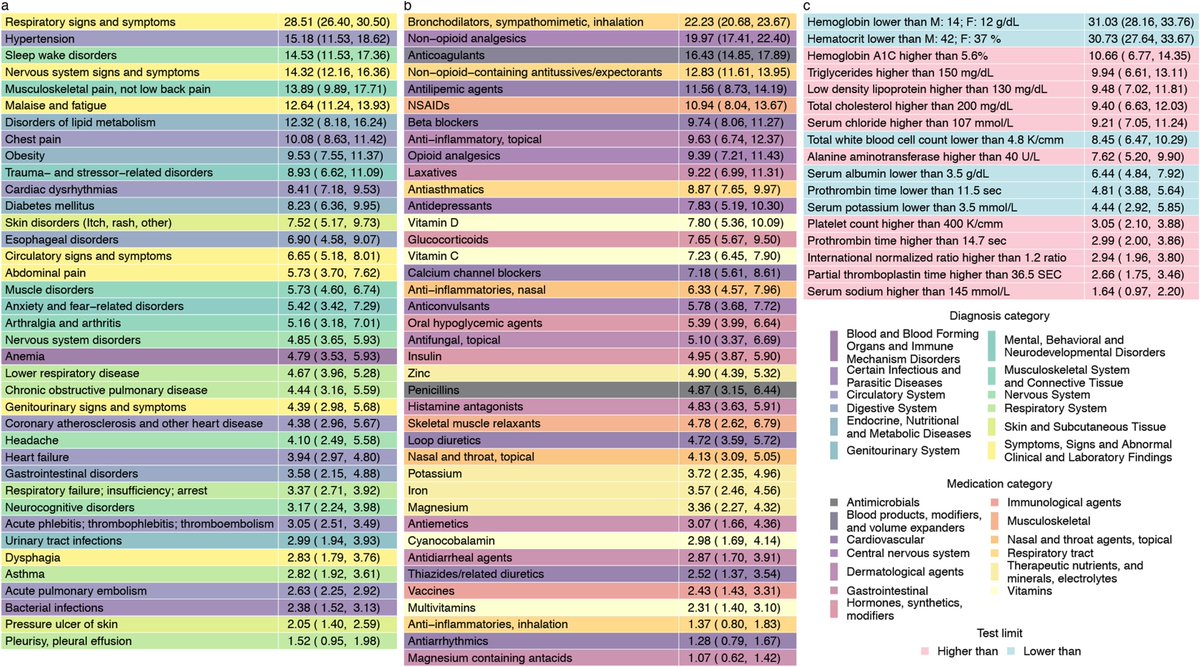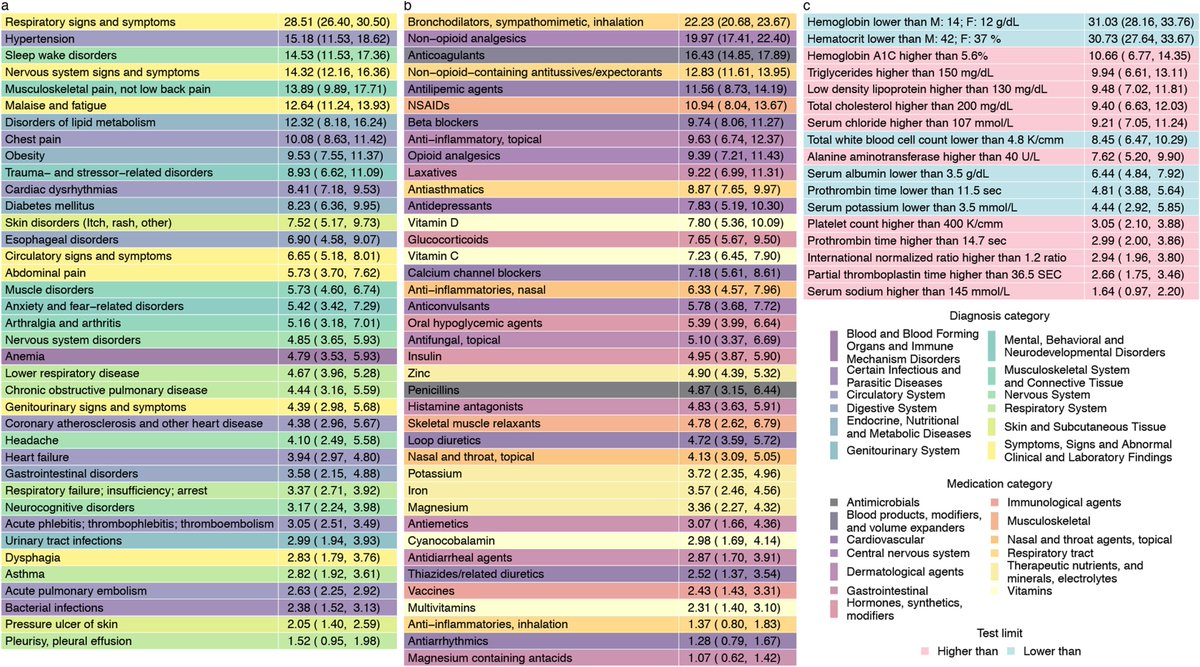
The latest from our team on the long-term cardiovascular consequences of Covid-19 in @NatureMedicine
@VAResearch @vahsrd @WUSTLpubhealth @WUSTLmed @WUSTLnews @VREFSTL @NaturePortfolio
@Biostayan @BCBowe
A thread
nature.com/articles/s4159…
@VAResearch @vahsrd @WUSTLpubhealth @WUSTLmed @WUSTLnews @VREFSTL @NaturePortfolio
@Biostayan @BCBowe
A thread
nature.com/articles/s4159…
In a cohort of more than 153 k people with COVID-19, 5.6 million contemporary controls, and 5.8 million historical controls without evidence of infection
We show increased risks of a wide range of cardiovascular diseases at 1 year

We show increased risks of a wide range of cardiovascular diseases at 1 year
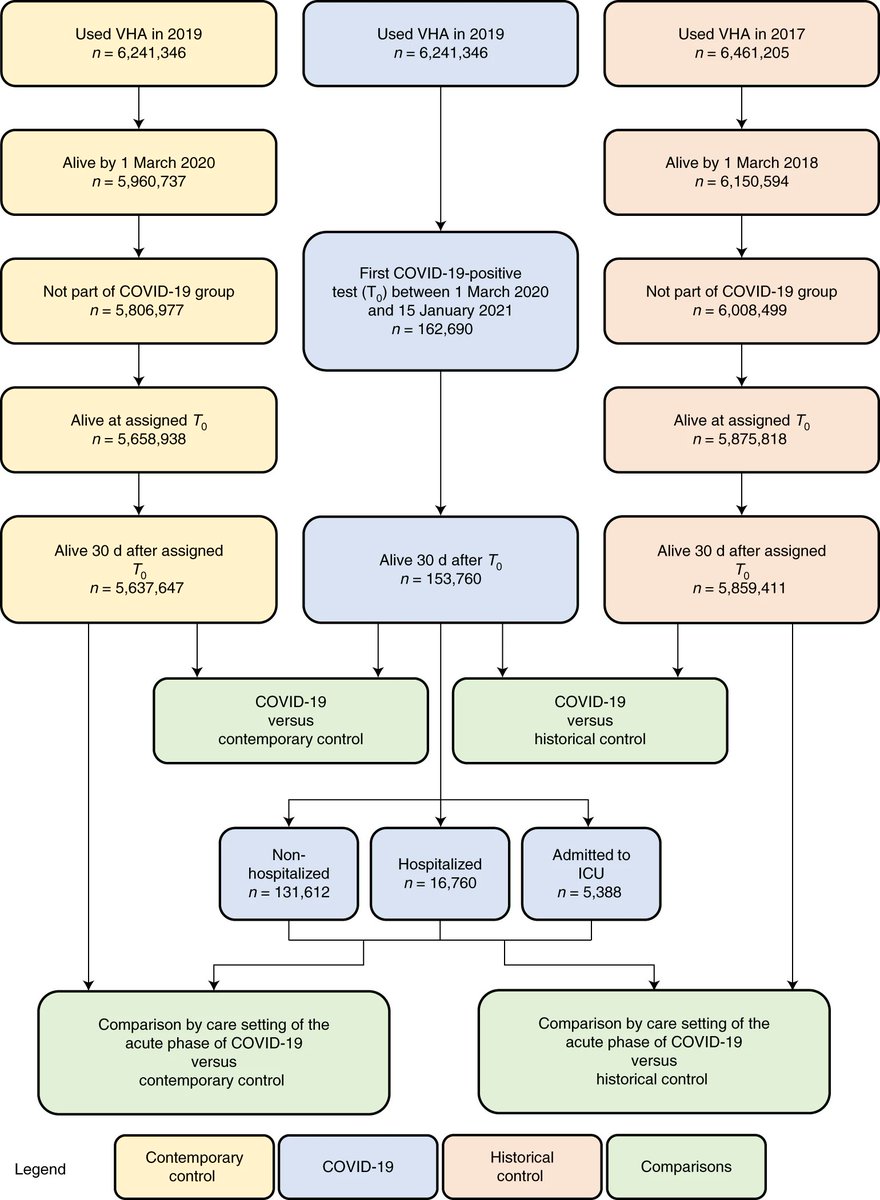

These include cerebrovascular disorders, dysrhythmias, ischemic and non-ischemic heart disease, pericarditis, myocarditis, heart failure and thromboembolic disease. 
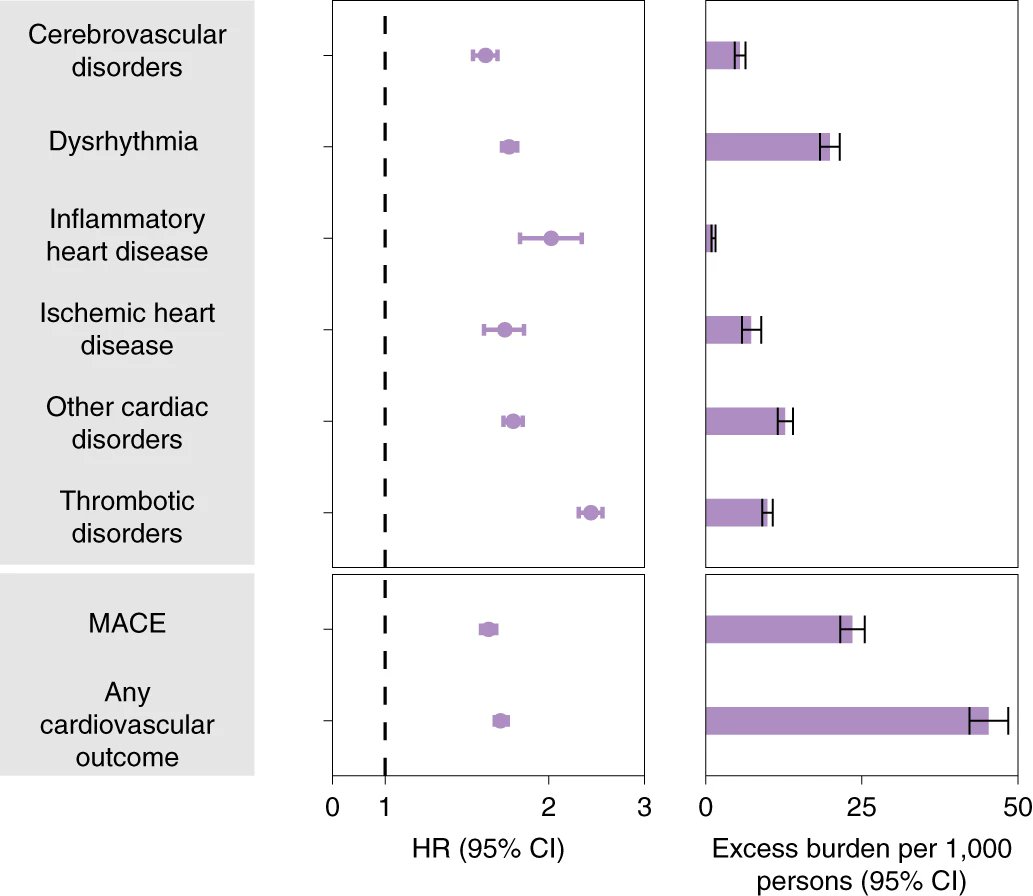
The risks of cardiovascular diseases were evident in all subgroups: young and old, White and Black people, males and females, and several other subgroups 

The risks were evident even among people who did not need hospitalization or ICU care during the acute phase of SARS-CoV-2 infection 



Governments and health systems around the world should be prepared to deal with the likely significant contribution of the COVID-19 pandemic to a rise in the burden of cardiovascular diseases
nature.com/articles/s4159…
nature.com/articles/s4159…
Because of the chronic nature of these conditions, they will likely have long-lasting consequences for patients and health systems and also have broad implications on economic productivity and life expectancy
nature.com/articles/s4159…
nature.com/articles/s4159…
Addressing the challenges posed by Long COVID will require a much needed, but so far lacking, urgent and coordinated long-term global response strategy
nature.com/articles/s4159…
nature.com/articles/s4159…
I am happy that the cancer moonshot is being re-launched. We need a Long Covid Moonshot
#LongCovidmoonshot
#LongCovidmoonshot
Grateful to my team, our funders @VAResearch @vahsrd our Editors and Referees.
nature.com/articles/s4159…
nature.com/articles/s4159…
Most grateful to the #LongCovid patient community whose heroic and historical advocacy inspired us and continue to inspire us to work very hard on #LongCovidResearch
#LongCovidisfact
nature.com/articles/s4159…
#LongCovidisfact
nature.com/articles/s4159…
• • •
Missing some Tweet in this thread? You can try to
force a refresh



